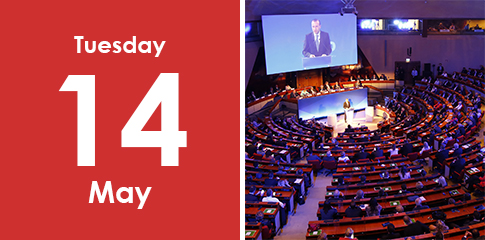Despite increasing scientific evidence of worsening environmental degradation and continuing climate change, actions to address them have remained largely insufficient to “smoothly” change course to a sustainable future. For too many individuals, organisations and public agencies, it is still business as usual, or almost. In short, we have been “sleepwalking into catastrophe,” with the possibility of major societal collapse no longer being science fiction. What can be done to wake us up? Based on different strands of research on major organisational failures in the public and private domains of activity, I offer three key prescriptions that should serve as wake-up calls for leaders in the first place but more generally for each of us.
Beware of optimistic biases
With impressive progress made in the field of artificial intelligence, computer science, life science and data science, many of us have a tendency to succumb to the charm of technology sirens and to believe that technology will fix our problems. Well, maybe but more likely no! Technological innovations have brought many positive solutions to humanity but none (or very few) of them has not ultimately failed or at least gone through significant troubleshooting. There is no reason, quite the contrary, to think that this will not apply to the latest technological sirens, in particular machine learning, robotics or blockchain, even as they get “smarter”, more reliable or more efficient. Simply because technology cannot, and should not, decide for us how we want the world (or our organisation) to be like. Putting a blind faith in it is not simply a manifestation of optimism but one of overconfidence, denial or even sheer folly.
So, contrary to a largely mediated slogan, we are not great and we will not be OK unless we get rid of our optimistic biases and address swiftly difficult questions on our core values and priorities. Those biases not only apply to technology but to the whole range of assets and know-how that make us think as individuals or groups of individuals that we are immune to collapse.
Think of the unthinkable
A second key reason behind “sleepwalking” is the general tendency to follow the established conventional wisdom, and to avoid confronting disturbing, “repugnant” notions and perspectives. In many (most) organisations there are ideas or assumptions that are simply unspeakable. And therefore there are “taboo scenarios” that keep obscuring possible trajectories until it is too late, leading to radical failures or collapses. The remedy here is clear: create conditions that encourage, and prize, the careful exploration of all options, even the ones that could put off key stakeholders.
There is a rich toolbox for making the best of such an exploration, in particular foresight that enables us to think systematically about the truly disruptive potential of different futures going beyond a restricted focus on “one true future” or even a “most likely” future. I provided a short illustration of the use of such tools in previous editions of this series for thinking about the future of international relations. Beyond the systematic use of a broad range of scenarios, the point here is that we should dare to challenge key tenants or assumptions underlying our business and organisational model.
Examples of such tenants include, for instance, consensus decision-making in international organisations, nation-states as the dominant legal entity in international law, GDP as the key measure of national welfare, shareholder value model as the key measure of success in business, grades as the key performance indicator in education systems, or, regarding the future of UK and the EU, the absence of a border on the Irish island or across the Irish sea as key elements of a successful solution!
Fend off short-termism
Third, and last, sleepwalking is the logical consequence of the choice predicated by short-term rational maximisation under constraints. Short-term gains are preferred to long-term ones because the latter often imply short-term costs, pains and fears. Typical ways to express this include “I care about the environment but I have to feed my family,” “to pay the salaries of my employees,” “to ensure the security of the country,” or “to please my electorate in the upcoming election.” History tells us that societies that collapsed all failed to develop long-term planning, particularly regarding environmental resource management. Evidence that we will do better is unfortunately limited.
On the positive side, one could praise the adoption of the so-called Sustainable Development Goals (SDGs) by the members of the United Nations (UN) in 2015 that aim at guiding the world until 2030. It has stimulated new business and financial models, with more attention being paid to the impact of actions and investment. Yet, as it has been clearly documented, there is an inherent tension between sustainability (particularly nature resource sustainability) and development in the SDGs, or to put it into different words between long-term planning and short-term gains. Short-term may be less short-term but we are still far off a significant priority given to long-term considerations. This is due to two key features of the world today, the negative side in this debate on short-termism.
The first is democracy and majority voting. There is massive evidence that elected politicians fail to embrace long-term planning and instead pilot their respective institutions with short-term horizons, guided by popularity polls and the electoral cycle. How to address this problem is unlikely to be easy if there is still ground to believe that, as Churchill famously said, “democracy is the worst form of governments, except for all the others.” But nothing stops the tyranny of winning majorities, in public spheres or in the private sphere of shareholder meetings, to select and empower long-term planners!
Whereas democracy currently reinforces the dominance of short-termism, the legacy of planning failures in the 20th century, along different variants (soft or hard) of control and command mode acts as a strong repellent against long-term planning. Yet, for those of us living in Europe, we should positively remember that we owe a significant part of our current peace and prosperity to the long-term vision and planning efforts of decision-makers after World War II, in particular Jean Monnet! If they could do it then, there is no reason we cannot do it again.









0 Comments